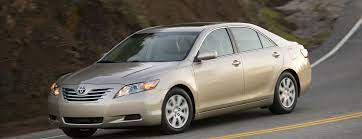On January 20, 2010, Toyota, one of the world's largest automakers, announced a sweeping recall of 2.3 million vehicles in the United States. This unprecedented move sent shockwaves through the automotive industry and marked a pivotal moment in the ongoing discourse surrounding vehicle safety, corporate responsibility, and the intricate challenges faced by major automakers.
The Trigger:
The recall was prompted by concerns over unintended acceleration, a potentially life-threatening issue where vehicles unexpectedly sped up without driver input. Numerous reports and incidents had surfaced, linking several Toyota models to accidents and even fatalities. The affected vehicles included popular models such as the Camry and Corolla, raising alarms about the safety of millions of cars on American roads.
Magnitude of the Recall:
Toyota's decision to recall 2.3 million vehicles was one of the largest in the history of the automotive industry. The recall encompassed a diverse range of models spanning multiple years, highlighting the scale of the safety concern. The company cited problems with sticking accelerator pedals and floor mat interference as the primary culprits behind the unintended acceleration issue.
Public Outcry and Regulatory Scrutiny:
The recall immediately drew widespread attention and sparked public concern. As images of crashed Toyota vehicles circulated in the media, consumers became wary of the brand's reputation for reliability and safety. Regulatory bodies, including the National Highway Traffic Safety Administration (NHTSA), launched investigations into the matter, aiming to ascertain the root causes of the acceleration problems and evaluate Toyota's response.
Impact on Toyota's Reputation:
Toyota, long revered for its commitment to quality and innovation, faced a severe blow to its reputation. The recall and subsequent investigations led to a sharp decline in consumer confidence. The company's stock price plummeted, and Toyota, for the first time in years, faced a serious challenge to its position as a global automotive leader.
Corporate Response and Remediation:
In response to the crisis, Toyota undertook extensive measures to address the safety issues and regain public trust. The company implemented fixes for the identified problems, including modifications to accelerator pedals and changes to floor mats. Toyota also vowed to enhance its quality control processes and instituted a more proactive approach to safety recalls.
Long-Term Repercussions:
The Toyota recall of 2010 had lasting effects on the automotive industry. It prompted increased scrutiny of safety practices across all major manufacturers, leading to a heightened awareness of potential defects and a more rigorous approach to quality control. The incident also spurred legislative and regulatory changes, with lawmakers pushing for stricter oversight of the industry.





